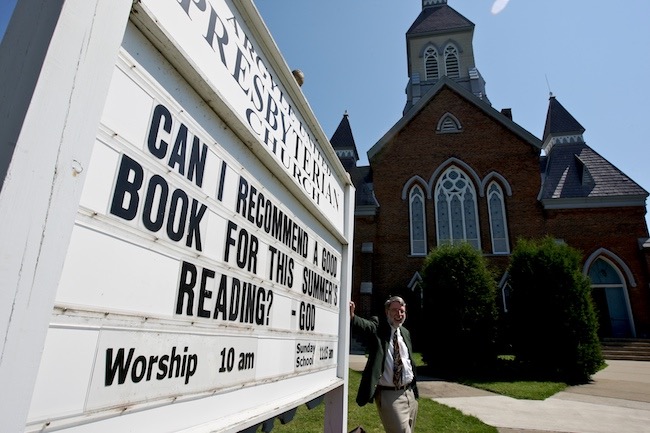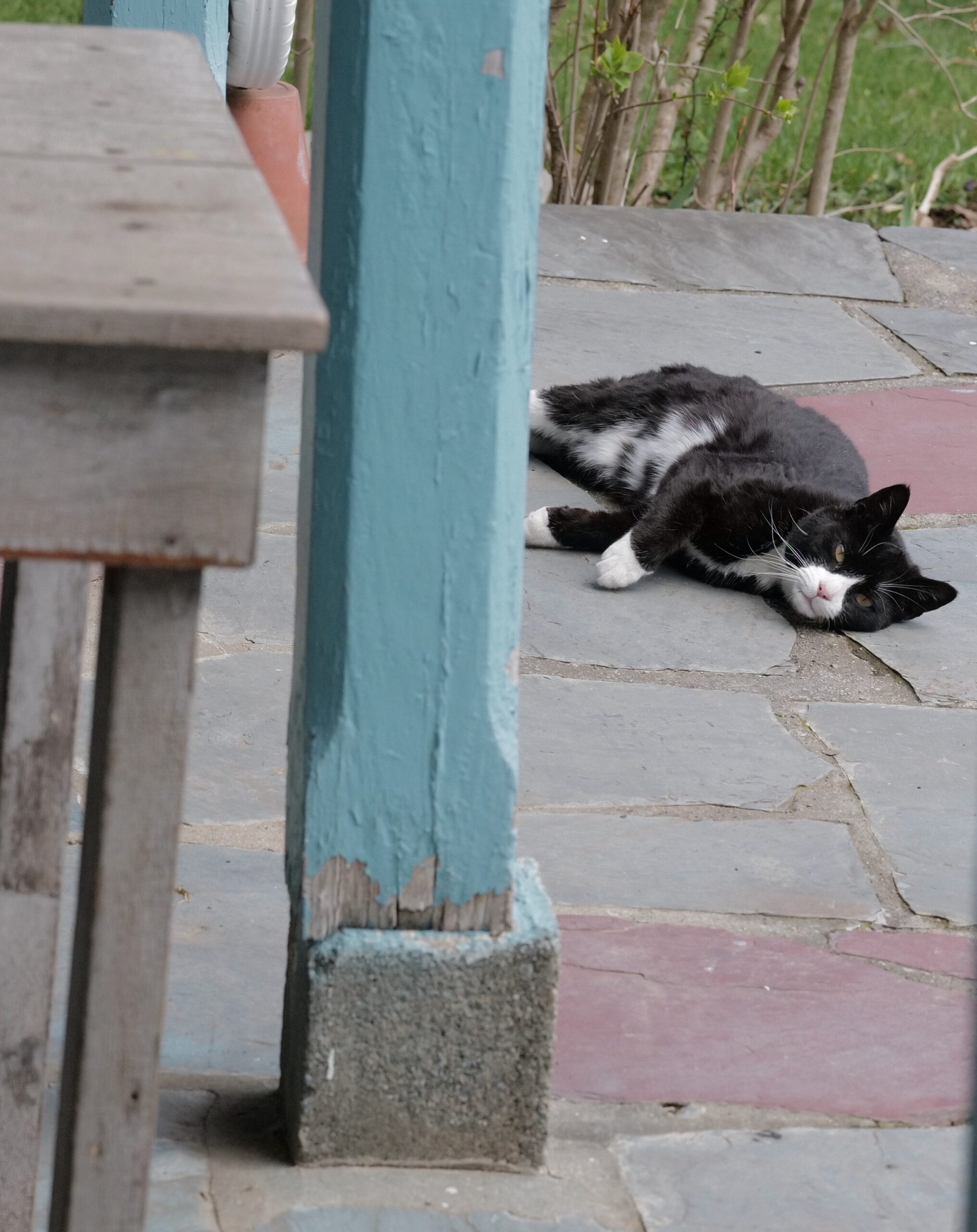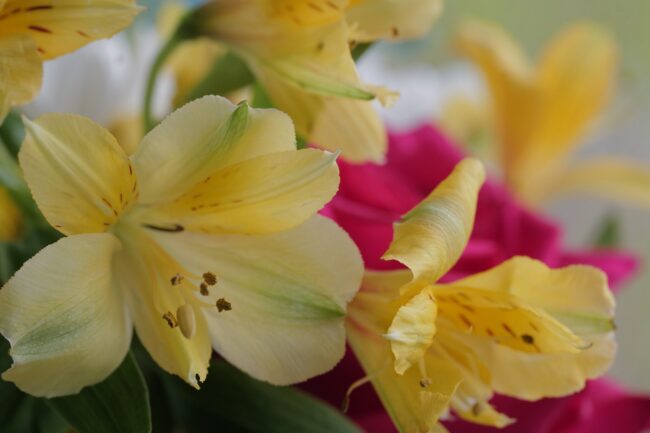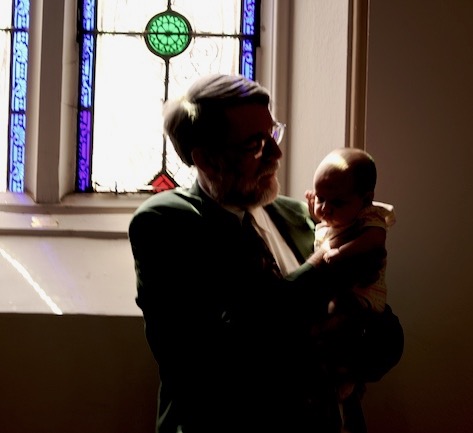I had been living on the first Bedlam Farm for nearly six years when I finally broke down in a gruesome, lonely, and fearful way. I had left everything behind and then lost everything I had.
My then-wife Paula, who suffered faithfully through much of my mental illness, was living in New Jersey; her work was in New York, and she had no desire to live in the country.
When I moved to the first Bedlam Farm, I told myself and my family that I was going there to write a book and then would sell the farm I had just bought for that purpose. I believed that. After six years, I still felt it, even though it was clear to everyone who read my books or knew me that my wife wasn’t moving up there with me.
I had come to love the country, solitude, nature, and animals. I needed all of those things in my life.
With the help of a rugged and plain-speaking Saratoga shrink, I finally realized that I was no longer married and proceeded rapidly into a delusional nightmare and a breakdown. By that time, I had given away all of my money and was convinced I was carrying out the work and wisdom of Jesus Christ.
The good news, and the only good news, was that I finally got help and began the long and intense recovery process. I am still recovering, and perhaps for the rest of my life. Most mental illness is treatable but not entirely curable.
The best thing about being mentally ill is that if you are fortunate and work hard, you can recover a bit every day.
A friend noticed my breakdown and struggle, suggested I attend the United Presbyterian Church in Argyle, New York, and asked the Pastor, an almost legendary man named Steve McLean for help.
Reverend McLean had an great reputation in our county. He was a member of the Fire and Rescue team and rushed out at all hours of the day and night to tend to injured people in accidents and plunge into the dark and dangerous work of the rural volunteer firefighters.
He didn’t just talk the Jesus talk, as so many Christians do, he lived it.
There was no time of day or night when the Reverend McLean would not rush out to help someone in his congregation. He was their shepherd, and they came to him and adored him.
He talked openly about the difficulties in his marriage and preached against divorce and people who abandoned their marriages. I wondered why he put up with me.

He was an old-style pastor, the country kind, strict, and unyielding in his faith, and generous to his congregation. He would go to widows’ houses and install their storm windows in the winter.
He was stern when he needed to be, loving when he wished to be.
He invited parishioners into his house – just across the street from the Church – to talk at any hour, sit with him, and eat peanuts in his backyard. He was forever rushing out to fires and car crashes, often to give the last rites to the injured and dead.
I was in a dreadful state when I went to Church to meet Steve. We met in his office at the church, and afterward, I spent a lot of time in his house across the street.
My religious background did not fit well or naturally into the Presbyterian liturgy or Steve’s beliefs. And I didn’t dare talk politics.
When we met, he saw how much trouble I was in – my shaking, my panic, my sadness – and he generously invited me to Church on Sundays and offered to meet with me once a week.
I told him I was born Jewish, converted to Quakerism, and followed Jesus Christ and his beliefs but did not worship him. He didn’t blink, but he knew he was in for it.
I was searching for God. I wanted to find him. Steve had obviously had a lot of experience in crisis counseling; he made me comfortable and asked all of the right questions.
Steve made himself clear. I was welcome to attend Church, and he was happy to meet with me. “But I should tell you that I am a Jesus man,” he said to keep the record straight. I knew what he meant. He expected my search would lead to accepting Christ as the son of God. He was after my religious soul.
Steve, I learned, was a soul savior.
He took in the lost and vulnerable – anyone who showed up in trouble – and brought most of them to Jesus. That was what he did.
I suspect he knew I wouldn’t end up embracing Jesus as a God, but he also noticed, he said, that I was more faithful to the teachings of Jesus than many people who called themselves Christians.
Steve had faith in what he did. It was all, after all, in God’s hands.
He never expected to fail. He was, after all, a “Jesus Man.”
Steve and I became almost instant friends. I admired his conviction mixed with compassion and his unwavering commitment to his flock. He lived to worship Christ and was devoted to helping needy people.
His congregation, which was enormous when I got there, was crazy about him. He was the real deal. He preached that we were all born sinners, even children coming to be baptized.
We talked on the phone, e-mailed one another, and had lunch. I was starting with my blog, and my desire for good works.
Steve read it, commented on it, and gave me some good advice. His was one of the first photographs I ever took. I had just purchased my Canon 5 D, the first camera I owned.
I invited him on one or two of my Hospice visits (I am a hospice volunteer, but he came only with the understanding that the patient accepted Christ, not that he wanted some insurance. He meant it.
When I told him that I was dating Maria, whom he had invited to dinner with me at his house, he asked to meet me at a church picnic up on a hill and sat down with me.
He said Maria was wonderful and he was pleased that I was seeing her. But, he said, he wanted to caution me against having sex with her. “Sex out of marriage is a sin,” he said. I loved Steve so much by then that I wanted him to marry us, but Maria and I agreed it would be awkward.
I believed he would have to say no. This wasn’t a person who compromised his principles, especially his religious ones.
I realized that Steve had not given up on me, a Jesus man. The sex talk was probably the last chance to steer me away from sin, something he couldn’t overlook.
I leaned over and touched his hand, saying, “Steve, I respect you, but I will be honest. I haven’t had sex for a long time, and if Maria wants to have sex with me, I can assure you, I’m going for it.”
He didn’t smile, but he didn’t frown either. We had a nice lunch and a warm goodbye.
Steve would be would be uncomfortable marrying two non-believers out of the Presbyterian faith. Maria is a lapsed Catholic; she is not a Jesus woman. He could not have abided this by marrying two sinners, much as he liked them.
I didn’t want to put him in that position. I did invite him to our wedding.
I was so glad he came to the wedding; he offered a prayer for us, a touchingly gracious gesture given his feelings about his faith.
Talking to Steve, whose faith and empathy were so powerful, I sometimes considered accepting Jesus and joining his Church. I wanted a place to land, a place of comfort and safety and faith. I couldn’t do it.
Steve was a religious person I loved and respected and perhaps could follow.
I should say that Steve helped save me during that awful period. Sometimes, knowing I could go and talk to him kept me going.
I didn’t know Maria when I first met Steve, and I had nowhere to go, no one to talk to but the friend who had introduced us.
Steve took me in when I was lost and stayed with me until I found myself again. I’ll never forget him for that.
The friend who brought me to Steve told me the Church was her life, and our friendship didn’t last long after I met Maria.
She was an Evangelical Presbyterian, and there was too much distance between us.
Steve was the closest I came to a genuine religious revelation. He was the real deal, bristling with integrity, faith, and a sometimes ruthless conviction. He was a hero who saved lives and turned others around.
If anyone could have brought me to Jesus, he could have. Yet I did feel that he and I were cut from the same cloth in many ways. I guess I’ll never know how close I could have come.
After I got married, I continued with my therapy work and began to recover. I felt I had no right to go to his Church if I didn’t embrace the faith. We stayed in touch, but as a Jesus Man, I knew Steve would put his energies into Christians in need, not in a Jew-turned-Quaker with a blog, something quite strange to him.
That was his calling, his faith.
He wasn’t a social worker for the world. He had a mission.
If I wanted to be close to him, I needed to accept him and who he was. I wish I could have; I have rarely met a better man than Steve.
I seem to tend to get close to the pastors who worship Jesus.
I am good friends with Ron Dotson; we are always getting more intimate. Ron is more accepting than Steve. He is also a “Jesus” man, and a pastor, but shows no interest in persuading me to embrace Jesus as a God or in trying to affect my religious beliefs. Then there was Bishop Moise.
We accept each other as we are. As I got healthier, I stopped going to Church. The congregation there mostly stayed away from me. I decided I needed a therapist more than a pastor. They each treated me very differently.
I am ever grateful to Steve for taking me in like that, listening to me, welcoming me. As a writer, he was fascinated by me, and we spent some beautiful hours sitting in his backyard eating peanuts together.
He was a tease and a wiseass.
Like me, the irony of it all is that I have read and been driven by the preaching and beliefs of Jesus Christ for much of my life.
I see Christians all around me abandoning him, but I can’t and won’t. I love what Jesus said being a Christian means, even if it often doesn’t mean what he said.
I’ve gone from one faith to another and back, but I’ve never dropped Jesus or stopped being inspired by him.
Perhaps that what God means, but it’s beyond me for now, I’ve found my place with it. My relationship with Jesus is longer than any other in my life.
Steve left the Church a few years ago and moved to Philadelphia to be near his parents.
The last I heard of him, he was doing missionary work in Texas and the Southwest. That sounds right. Steve would never stop taking on the complex and thankless job of helping people nobody wanted to help.
Nor could he ever retire. There were way, there were too many people who needed to have their souls saved. Jesus preached that on the Mount.
I knew our friendship couldn’t hold up for too long any more than my friendship with Moise, a Bishop in the Amish faith. Both are true “Jesus Man.”
Steve wished me well; we shared the same sense of humor and a human drive to help the needy.
But I was drawn to these men, I think, because of their great faith.
I remember the last time Steve and I had lunch.
“I’m sorry, I can’t be a Jesus Man,” I said. “Don’t be sorry,” he said. “You ARE a Jesus Man. You’re just not a Presbyterian Jesus man.
We hugged and said goodbye. I will always remember this good man for being able to help me when I was the neediest I have ever been.
That’s what a true “Jesus Man” would do.















